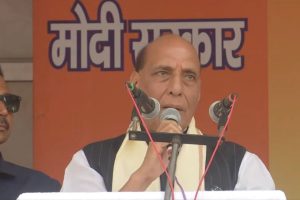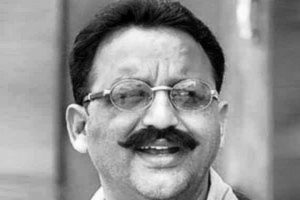In the 4th Century BC, the Greek philosopher Diogenes went searching for an honest man. He travelled far and wide carrying a lamp with him even in broad daylight so that he would have the best possibility of finding this person. All his travels became an exercise in futility because Diogenes couldn’t find an honest person anywhere. If we were to put ourselves in Diogenes’ shoes and start looking for an honest person today, I am sure we would have the same experience as Diogenes did thousands of years ago.
According to contemporary sociologists and psychologists, we are living in a time where people are lying more and more each day. What is truly sad and profoundly disturbing is to see the extent to which lying is now considered not only acceptable by many, but it has also become quite commonplace in our daily interactions. In A Pack of Lies: Towards a Sociology of Lying, JA Barnes says, “Lies are everywhere. We hear continually about lying in public and private life. Very few people would claim never to have told a lie and even fewer would say they have never been duped by a liar.” It is this widespread acceptance of lying that has contributed to an erosion of cultural values in our communities today.
Just think of all the small, petty untruths many people engage in on a daily basis. When we are asked a very basic question like how old we are, a lie is often used in lieu of the truth. We also tell a lie to avoid conflict or avoid hurting someone’s feelings. For example, when we know we are inconvenienced when someone asks for our help, we are often not honest with our answers, saying instead that we will be happy to help even when we know very well this isn’t true; or we even make up a story based on a falsehood to get out of the situation.
Advertisement
Experts tell us that these kinds of lies are something that we learn in childhood. It is during our childhood when we learn how to lie to avoid getting punished by our elders or disappointing them, or hurting their feelings. How many of us can remember those times when we boldly spoke the truth, which we had been taught to practise by our parents only to find out that speaking the truth didn’t help our case at all. On the contrary, practising honesty often landed us in trouble with our parents. It is then that many of us realized we needed to be more circumspect when it came to speaking the truth because the truth can cause pain. We learned slowly but surely how to lie in order to protect others and ourselves from pain or harm. It is certainly very perplexing for children when they see very few people around them are actually speaking the truth. In All About Love, feminist scholar Bell Hooks writes, “Concealing the truth is often a fun part of childhood play, yet when it becomes a common practice, it is a dangerous prelude to lying all the time.”
In his best-selling book, Loving Each Other: The Challenge of Human Relationships, Leo Buscaglia lists five kinds of lies that we use in our everyday life. Buscaglia calls the first one “benevolent lies,” which is the most common of all lies in social situations. We don’t speak the truth because we don’t want to hurt or offend the other person. An example of this would be when someone says, “Why didn’t you come to my party?” instead of saying “Because I find your parties boring,” we say, “I wasn’t feeling well.” The second kind of lie is called “self-protective or ego-protective lies,” which are used to make things comfortable for us. For example, when someone confronts us, we often respond by saying: “I didn’t quite say that,” or “You didn’t understand me.” We also resort to using “manipulative lies” in our interpersonal relationships when we want to manipulate the truth for our welfare or advantage. Then we also use “impersonal lies” when we lie on income- tax and expense accounts. Buscaglia labels the last one as “status lies,” where we engage in one-upmanship games with others in order to boost our egos when, in reality, we don’t have the necessary wherewithal to impress others or engage in oneupmanship. These are just a few examples of common everyday lies that we practise. There are, however, other kinds such as cover-up lies, conspiratorial lies, etc. According to Buscaglia, many do not regard these lies as a serious offence because for them they are actually quite “harmless.” In fact, we are often led to believe that engaging in these kinds of lies actually benefits us.
Lying is quite common in male/ female relationships, especially in patriarchal societies. For Hooks, men often lie or withhold information as a means of power and control over women. And when men engage in lying to women by presenting a false self, they lose their capacity to give and receive love, according to Hooks. Ironically, patriarchal ideology also socializes women to lie to men in order to manipulate them to give them things that women feel they need or deserve. In The Dance of Deception, Harriet Lerner says that women often become complicit in the structures of pretense and lies in a patriarchy. Many leading psychologists point out that this widespread cultural acceptance of lying is one of the main reasons why many people will never have healthy, rewarding relationships because when trust is broken, genuine connection cannot take place.
Nowhere is lying more visible than in the world of politics, where mendacity has become synonymous with politics itself. This state of affairs could not have come to be unless lying was rehabilitated and transfigured into a virtue where truth was either dispensed with or regarded as one of the many versions of truth. In his Nobel Lecture titled “Art, Truth and Politics,” Harold Pinter said: “Political language, as used by politicians, does not venture into any of this territory since the majority of politicians … are interested not in truth but in power and in the maintenance of that power. To maintain that power it is essential that people remain in ignorance, that they live ignorance of the truth, even the truth of their own lives. What surrounds us therefore is a vast tapestry of lies, upon which we feed.”
Echoing the sentiments of Pinter, Frederick George Bailey reported in his book, Humbuggery and Manipulation: The Art of Leadership, that lying is pervasive in politics. Bailey observed that lying was a requirement for occupational success and the ones who were conventionally virtuous were found to be ineffective.
Hannah Arendt, who is considered as one of the leading political philosophers of the twentieth century, wrote extensively on the subject of lying in politics. In fact, her famous essay Truth, Politics, and Lying explains in great detail how mendacity contributes to totalitarianism. According to Arendt, totalitarian leaders obtain total allegiance of the populace by coercion, manipulation and mobilization. And one of the ways to gain consent of the masses is by propagating lies and by using powerful persuasive techniques to deny factual truths. In this kind of strategy, which is frequently employed by totalitarian regimes, a fact is often transformed into just another opinion in a world of “alternative facts.” Arendt warns us about an even greater danger: “The result of a consistent and total substitution of lies for factual truth is not that the lies will now be accepted as truth, and truth defamed as lies, but that the sense by which we take our bearings in the real world ~ and the category of truth vs. falsehood is among the mental means to this end ~ is being destroyed.”
Arendt had a deep insight into the dangerous consequences of lying in politics that we are living through now. The very categories of truth versus falsehood, facts versus lies seem to have been obliterated. Consequently, the possibilities of lying have become boundless and are met with little or no resistance. We can see how much mendacity has become common in politics in many countries. For instance, in the United States, President Trump has great difficulty in speaking the truth. In fact, the Fact Checker at The Washington Post reported that in 787 days, President Trump made 9,179 false or misleading claims, which don’t seem to be a major concern to his supporters.
Sadly, in today’s world, telling lies has become the new norm, which implicitly encourages us to view honest people as naïve and as potential losers. President Trump and politicians of his ilk lead us to believe that it’s okay to lie and that truth just doesn’t matter anymore.
(The writer is professor of communication studies at Loyola Marymount University, Los Angeles)
Advertisement











